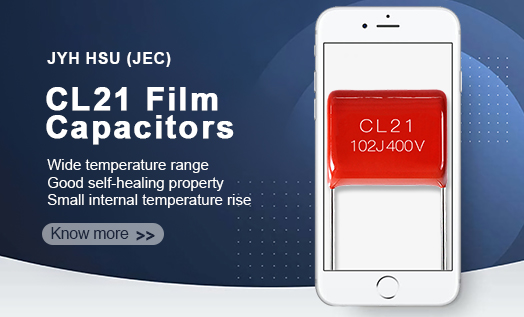Film capacitors are commonly used electronic components that utilize plastic film as the dielectric material and metal foil or metallized film as electrodes. They are cylindrical capacitors formed by overlapping from both ends through a winding process. These capacitors possess characteristics such as high voltage resistance, good temperature stability, and stable performance. They play a crucial role in electronic products, serving the purpose of storing charges and controlling voltage.
Film capacitors have become indispensable in new energy technologies. In solar photovoltaic power generation systems, film capacitors find extensive use in energy storage and voltage stabilization.
When sunlight strikes the solar panels, the generated current passes through a converter, transforming it from direct current (DC) to alternating current (AC). The electrical energy at this point is not stable and requires the filtering effect of film capacitors to ensure the quality of the output power.
Similarly, film capacitors play a key role in wind power generation. The inherent instability of wind power generation is well-known, with rapid changes in wind speed potentially leading to fluctuations in power output. The energy storage properties of film capacitors effectively absorb these fluctuations, ensuring a stable output of electrical power.
With its unique performance characteristics and widespread application scenarios, film capacitors have become an essential component in the field of new energy.
This article is provided by JYH HSU (JEC) Electronics. JEC is a research, development, production, and sales-oriented company specializing in manufacturing and selling various electronic components such as capacitors and resistors.
Post time: Jan-10-2024

